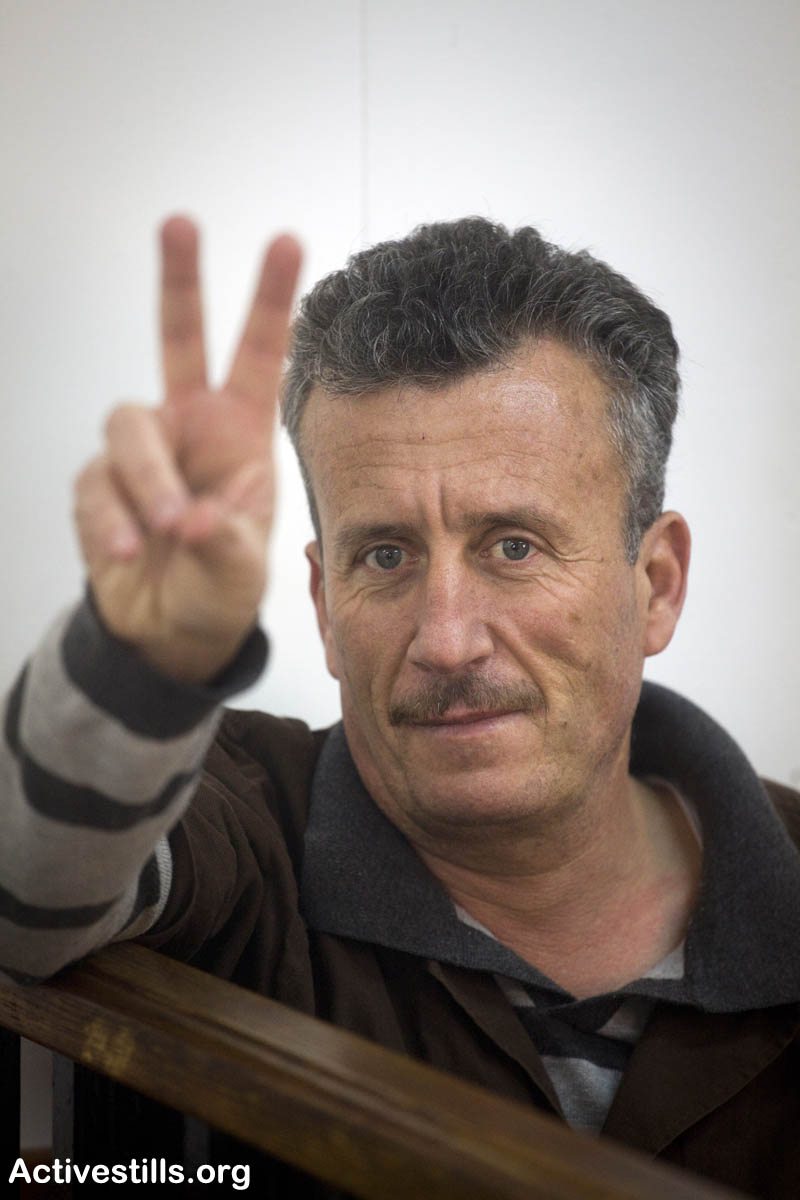Category: In the Media
-
Palestinian activist to judge: I do not recognize your rules
20 February 2012 | Popular Struggle Coordination Committee Bassem Tamimi from Nabi Saleh testified yesterday as part of the defense’s case in the ongoing trial against him. Tamimi, suspected of protest related charges, was arrested on March last year, and remains in detention since. After 11 months in an Israeli jail, Bassem Tamimi, a prominent…
-
Jewish settlers and policemen defile Aqsa Mosque, clash with Muslim worshipers
19 February 2012 | Palestine Information Center OCCUPIED JERUSALEM, (PIC)– A group of Palestinian worshipers holding a vigil inside the Aqsa Mosque have fended off dozens of fanatic Jewish settlers who tried on Sunday morning to desecrate the Islamic holy site, and clashed with their police escorts. The Israeli occupation policemen spread extensively throughout…
-
5 Palestinian fishermen arrested by Israeli Navy, one of them a 13 year old boy
by Rosa Schiano 16 February 2012 | il Blog di Oliva In the past few days five Gazan fishermen have been arrested by the Israeli Navy off the north coast of Gaza. Adham Mahmoud Abu Ryada, 22, and his brother Mohammed Mahmoud Abu Ryala, 13, were both arrested on Sunday evening. Jamal Ramadan Al Sultan, 58…


